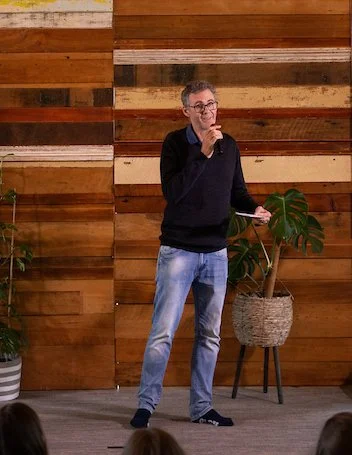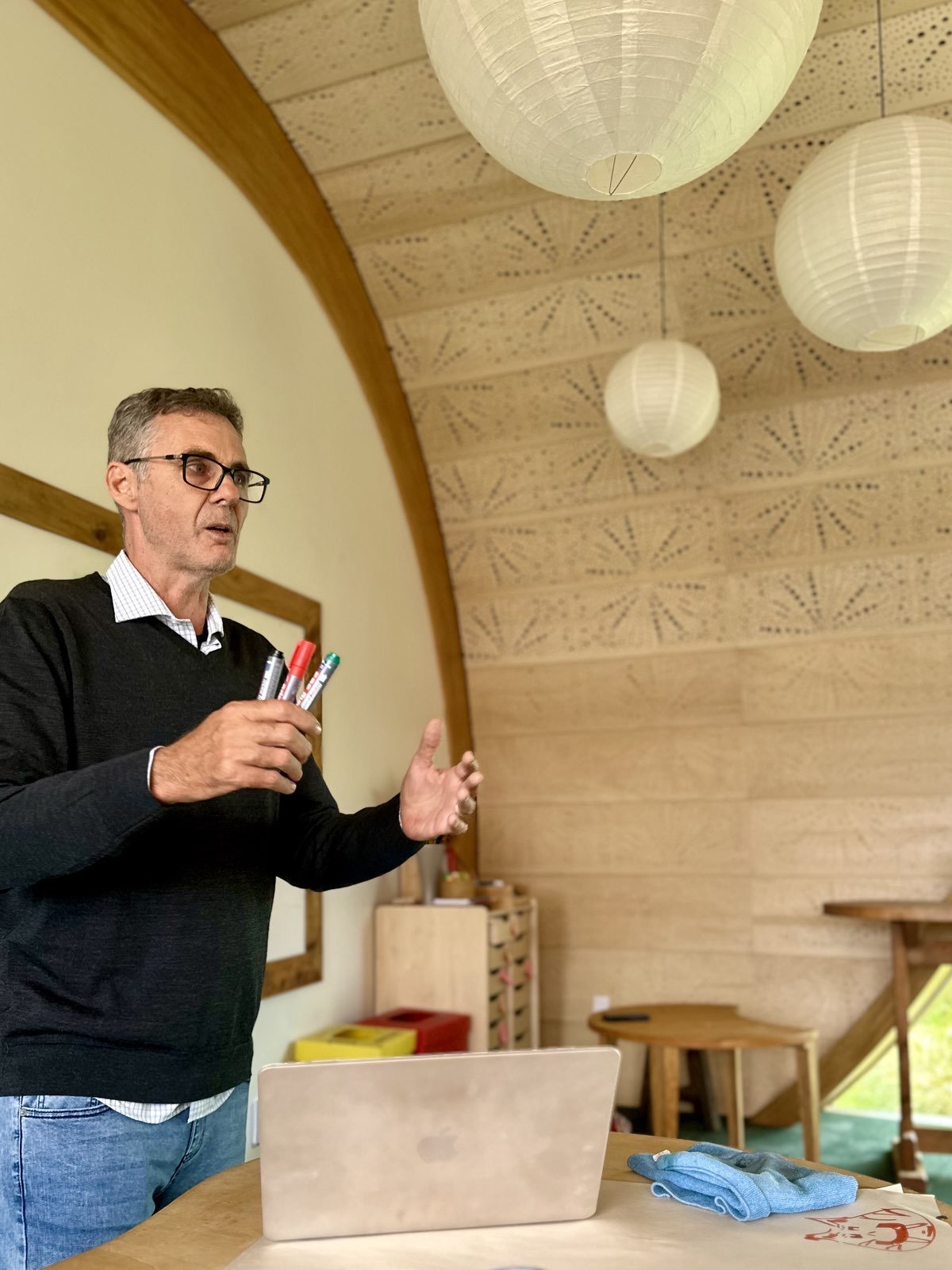Reimagining New Zealand Education
Exciting opportunities often arrive disguised as challenges, and the recent decision to phase out NCEA from the NZ High School curriculum is no exception. This bold move flips the old script - no longer are we bound by outdated systems that have struggled to prepare students for the complexities and uncertainties of today’s world (let alone a fast-changing curious future). Instead, we’re being handed a golden chance to rethink, reinvent, and transform education into a vibrant, skills-driven, values-based, and real-world connected experience. SAL GORDAN | HEAD OF HIGH SCHOOL NZ*
*Learn more below about Green School New Zealand, or it’s journey here. Hear from Sal here on Toddle Podcast or here on The Learning Future Podcast or a chat with India at Future School Leaders and at Educators Changemakers Academy Educators.
Why settle for going back to familiar solutions that have proved inadequate? The traditional disciplines - Literacy, Maths, Science, the Arts - are undeniably valuable, but they shouldn’t be approached as isolated silos. The world’s biggest issues - climate change, social inequality, rapid technological change - demand creative, integrative, multidisciplinary thinking. Our schools should serve as laboratories of innovation, where students learn to solve problems that matter now and into the future. It’s time to remove the rigid structures of traditional education and foster a curriculum that is fluid, dynamic, and interconnected. Fast forward to the Industrial Revolution, and the focus shifted once again. Schools prioritized literacy, numeracy, and technical skills that supported factory work and technological progress. Here, intelligence was associated with solving problems efficiently, operational skills, and logical reasoning - traits that supported productivity and innovation.
New Zealand has a history of being ahead of its time when it comes to courageous innovation. Historically, Kiwi pioneers have led the way - from being among the first (in 1893) to give women the right to vote, to pioneering environmental sustainability efforts early on with strong conservation movements. In the realm of science and technology, New Zealand was among the first countries to adopt renewable energy solutions like geothermal and hydro power, setting global standards for clean energy development. Additionally, New Zealand has been a global leader in recognizing and valuing indigenous culture, embedding Māori perspectives and values into national identity and policy, and promoting biculturalism as a model of inclusive, respectful leadership. We have the ability, and the history, to lead the way once again - shaping future education systems that are more adaptable, inclusive, and forward-thinking, truly reflecting the ingenuity and resilience that define our nation.
Or do we go back to an old system that hasn’t worked before and was designed for a world that doesn’t exist anymore?
The Power of Themes and Challenges
Imagine a curriculum built around real-world themes - sustainability, digital innovation, cultural resilience, social justice - all woven into projects, debates, and community-based initiatives. Students would work collaboratively, developing critical skills like creativity, resilience, adaptability, and ethical reasoning. Instead of simply memorizing facts, they actively engage in solving complex problems, learning through experiences that mirror the societal challenges they will face.
This approach isn’t merely theoretical. Countries like Finland - widely regarded as a global leader in education - have long emphasized holistic, inquiry-based learning. Their system encourages curiosity, critical thinking, and social-emotional skills, creating learners who are prepared to innovate and lead. Similarly, Scandinavian countries like Denmark and Sweden embed entrepreneurship and design thinking into their curricula, empowering students to be creators as well as consumers of ideas.
In Singapore, education reform has focused on fostering a growth mindset—where mistakes are seen as vital to learning - and emphasizing skills like adaptability and teamwork. Schools encourage interdisciplinary projects, encouraging students to apply knowledge from different fields to tackle real-world issues. These models prove that when education prioritizes relevance, flexibility, and values, students thrive and become active contributors to society.
A Skills and Values-Based Future
The potential for NZ schools to follow suit is enormous. We can develop a system where leadership and citizenship are as central as literacy and numeracy. Students should leave school with the confidence to innovate, to question, and to act ethically in a diverse and rapidly changing world. An emphasis on sustainability and social responsibility should be threads through all learning experiences, not afterthoughts, ensuring young people understand their role as global citizens.
This shift requires a new mindset - one rooted in a growth mindset, where failures are seen as opportunities for learning, and adaptability is celebrated. Our educators need to be facilitators and mentors, guiding students through complex projects and encouraging risk-taking within safe, supportive environments. Teachers will become designers of learning experiences, creating opportunities for students to engage with real-world issues - climate resilience, digital ethics, cultural heritage, social entrepreneurship.
Rethinking Literacy and Numeracy—Doing It Differently
Most importantly, we need to transform how we develop foundational skills like literacy and numeracy. The old methods - rote memorization, repetitive drills - no longer suffice because ... “we cannot solve our problems with the same thinking we used when we created them” (a quote that is commonly attributed to Albert Einstein). Instead, NZ can lead a revolution in teaching literacy and numeracy by making these essentials relevant, engaging, and multidimensional. Imagine literacy lessons rooted in environmental storytelling, or numeracy tied to real-life contexts such as data analysis of climate change impacts or financial literacy through entrepreneurial projects. Making literacy and numeracy part of meaningful, real-world tasks will boost student engagement and understanding far more than traditional approaches.
We must do away with the “more of the same” mentality and instead, incorporate innovative pedagogies - like project-based learning, digital storytelling, or inquiry-driven Maths and science - that foster deep understanding and skills that matter in today’s world.
Harnessing the Power of Innovation in Education
Other countries exemplify this shift. The Finnish education system, which consistently ranks among the world’s best, emphasizes student-centered learning, personalised pathways, and collaborative problem-solving. Their curriculum is flexible and themes are often integrated across subjects, focusing on real-world issues - like climate change or community health - drawing learning into matters students care about.
In New Zealand, emerging models like Te Pae Tata (a Māori-based approach emphasising connection, purpose, and collective well-being) exemplify values-driven education. Schools in Australia are adopting innovative pedagogy that centers on design thinking, entrepreneurship, and community engagement. The United States has seen the rapid rise of “project-based learning” schools where students solve local issues - such as homelessness or urban renewal - and develop the skills to lead and innovate.
A Future-Ready Education for a Rapidly Changing World
Today’s world is changing faster than ever, driven by technological breakthroughs, climate crises, and global interconnectedness. Our students need more than just knowledge - they need resilience, problem-solving skills, and the ability to adapt quickly to new challenges. They must develop critical thinking, creativity, empathy, and a commitment to sustainability - traits that will prepare them not just for the jobs of tomorrow, but for active, compassionate participation in an evolving society.
Our education system has a unique opportunity - right now - to shift from a teacher-led, rote-focused model to one that champions innovation, curiosity, and purpose. Schools can become hubs of creative problem solving, where students are empowered to question assumptions, collaborate across disciplines, and directly address societal issues. The goal isn’t just to produce students who can pass exams but to cultivate lifelong learners equipped to think deeply, act ethically, and lead positive change in their communities and beyond.
This is our moment. The global landscape is demanding a new generation of thinkers - people who are adaptable, inventive, empathetic, and committed to shared values. We have everything we need to embed this future-ready mindset through curriculum reforms that prioritise interdisciplinary themes, hands-on problem solving, and values-based education.
The time to innovate is now. The future of our young people - and of New Zealand - depends on it.





